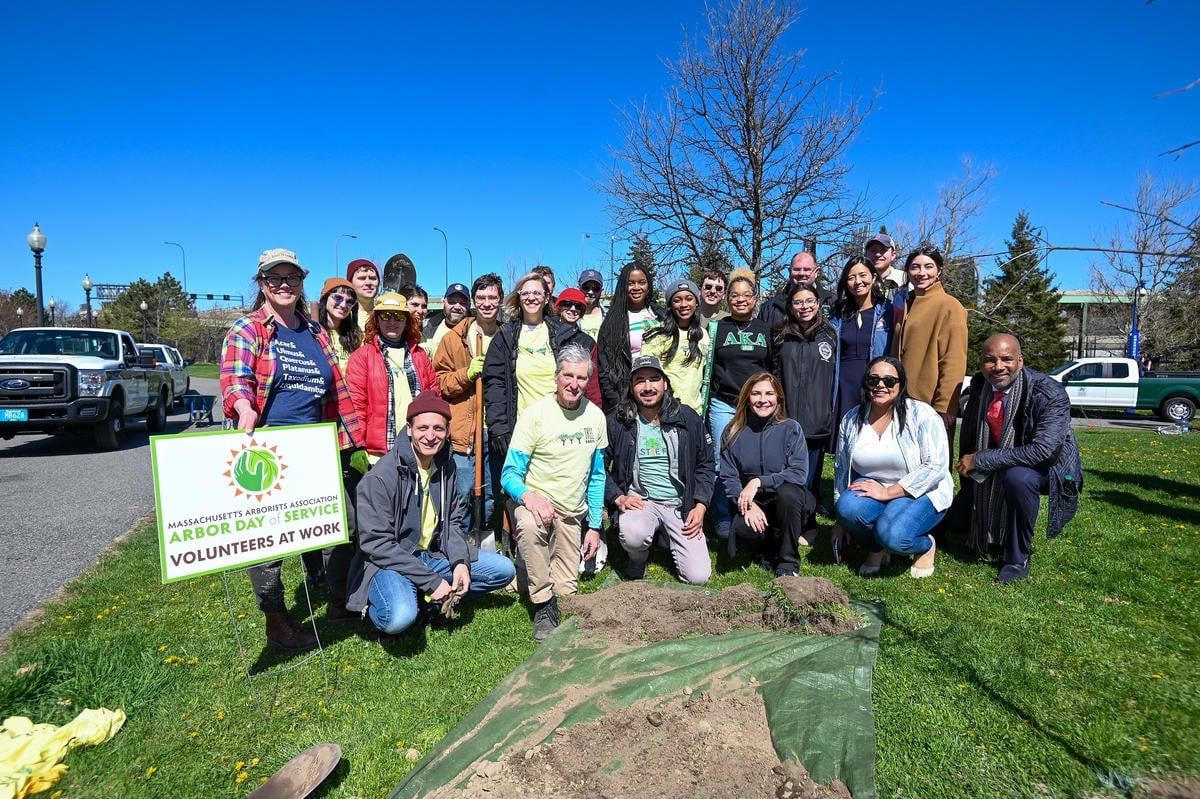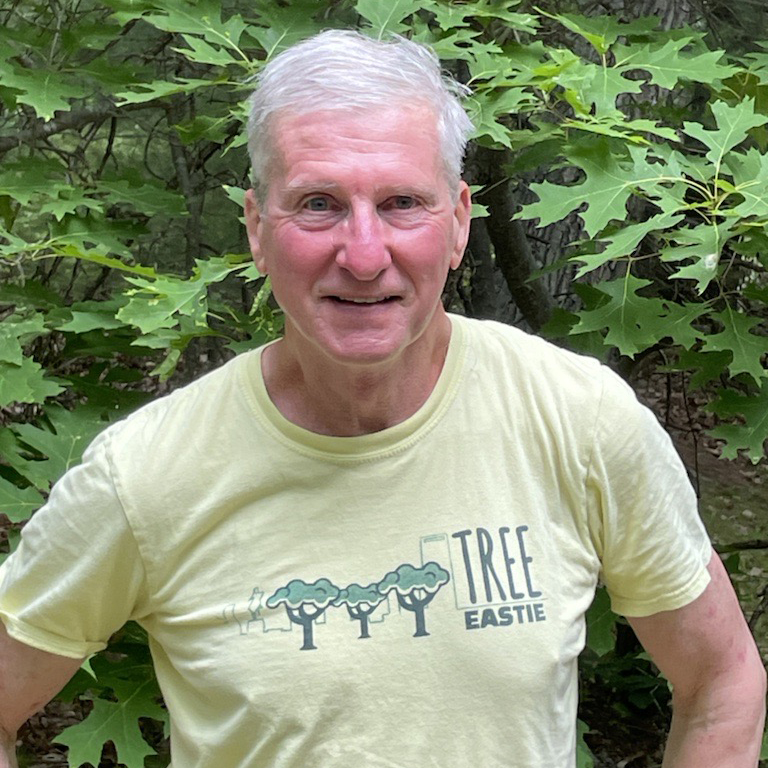Q&A With Tree Eastie's Bill Masterson, Boston Tree Alliance partner
October 11, 2024
Created by the City of Boston’s Cabinet of Environment, Energy, and Open Space, the Boston Tree Alliance aims to equitably grow the urban tree canopy in Boston through tree planting and care on privately-owned land in environmental justice communities in Boston.
Boston Mayor Michelle Wu tapped Mass Audubon to lead a coalition of community-based organizations and nonprofits that work to co-create best practices in urban forestry and connect with private landowners.
Community-based organizations and nonprofits can apply for grant funding from the Alliance for tree planting projects. In April 2024, the first round of funding ($116,000) went to five groups to plant more than 170 trees in Boston this year. Among the recipients was Tree Eastie. Bill Masterson, Founder and Executive Director of Tree Eastie, shares why his organization applied for the funds and what it means.
What are the main goals of your organization?
Tree Eastie is a community based urban forestry program. Our mission is to improve the canopy in East Boston by planting and caring for trees as well as educating residents on the benefits that trees provide.
Why did you apply for funding from the Boston Tree Alliance?
It was a great opportunity to expand the tree canopy on private property, which is where the greatest tree loss has occurred over the past 10 years. With this funding we will plant and care for trees as well as engage with residents on tree care and their benefits.
What most excites you about this opportunity?
To begin with, I am most excited about the 100 new trees that will be planted on private property with these funds. But the real excitement comes from engaging with volunteers and residents. I love to see families get excited when our volunteers show up in their yard with their new tree.
Homeowners are so happy to receive a free tree and to learn more about trees. They have so many questions and often want to lend a hand. Their curiosity indicates that they are invested and will care for the tree in years to come. They are very excited with the prospect of watching their new tree grow with them into the future.
What types of trees are you planting and why?
We try to plant as many native species as possible such as oak, maple, dogwood, hop-hornbeam, redbud, and tupelo. Native species adapt better to our area and provide benefits to local birds, insects and animals.
What is your hope for the future of the Boston Tree Alliance?
I hope The Tree Alliance continues to provide funding for new trees as well as encourages participants to share their stories and learn from each other.
Funding for 2025
Applications for the next round of tree planting grants are open through October 28, 2024. Nonprofit and community-based organizations may apply for tree planting and care projects in the spring and fall of 2025. Get details on how to apply or reach out with any questions.
Stay Connected
Don't miss a beat on all the ways you can get outdoors, celebrate nature, and get involved.




